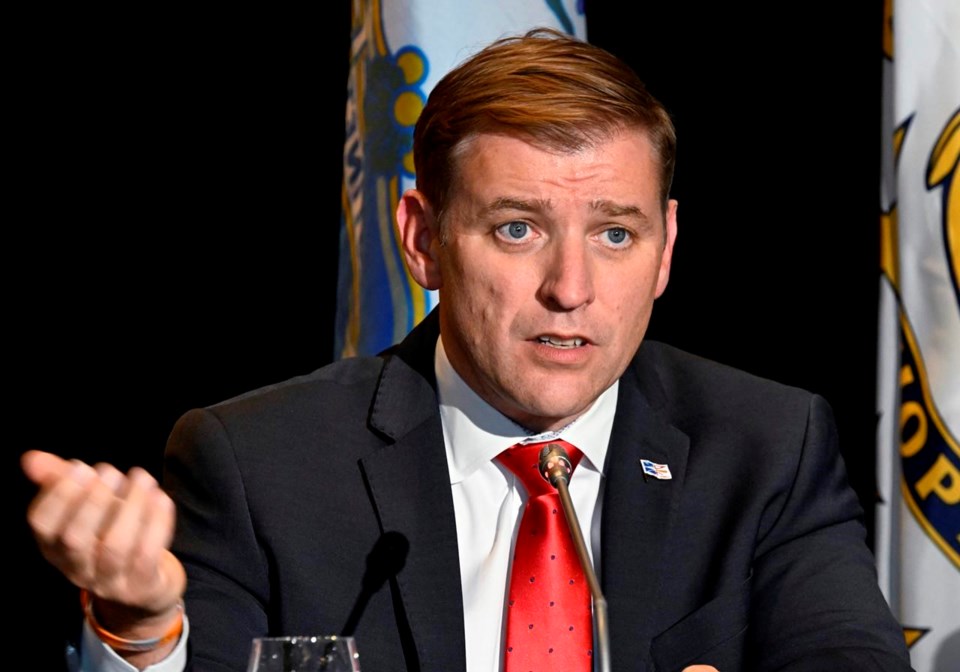ST. JOHN'S, N.L. ÔÇö The Newfoundland and Labrador government will begin apologizing to residential school survivors in the province, nearly six years after the apologies were first promised.
The province says Premier Andrew Furey will make an apology on Friday in the southern Labrador community of Cartwright, where the Lockwood boarding school operated until 1964. The apology will be made in collaboration with the NunatuKavut Community Council.
ÔÇťThe Government of Newfoundland and Labrador remains committed to delivering apologies to former students of the residential school system, and will continue to engage with other Indigenous governments and organizations ... on their respective apologies,ÔÇŁ a news release Wednesday said.
The move has sparked anger from the Inuit government in Labrador, which does not recognize NunatuKavutÔÇÖs claims of Inuit identity.
Indigenous Peoples in Newfoundland and Labrador have long awaited a provincial apology to those who attended residential schools. The province was home to five dormitory-style schools, the last of which closed in 1980.
Four were in Labrador and one was in St. Anthony, at the tip of NewfoundlandÔÇÖs Great Northern Peninsula.
Prime Minister Justin Trudeau flew to Labrador in 2017 to offer a federal apology after former prime minister Stephen Harper omitted the region from his apology in 2008. His Conservative government argued that Ottawa didnÔÇÖt oversee those schools since they were established before Newfoundland and Labrador became part of Canada in 1949.
Trudeau's apology included survivors from NunatuKavut.
The Innu Nation in Labrador rejected Trudeau's apology, saying it did not include the harm inflicted on Innu children in Roman Catholic day schools and in the homes of teachers and missionaries.
In November 2017, former Newfoundland and Labrador premier Dwight Ball said the province would offer an apology of its own. However, his plans to deliver it in 2020 were thwarted by the COVID-19 pandemic.
In a news release Wednesday, Johannes Lampe, president of the Inuit Nunatsiavut government in Labrador, said it was an insult for Furey to apologize first to an "unrecognized Indigenous group," particularly on the day before the National Day for Truth and Reconciliation.
"This feels like the province is telling us they do not respect Inuit ÔÇô and it exposes the deep roots of colonialism still impacting us today," Lampe said in the release.
He noted that Labrador Inuit were central to the fight to get an apology from Ottawa, and said "it is only right" that they be the first to receive an apology from the province.
He called for the "immediate removal" of Lisa Dempster, the province's minister of Indigenous affairs and self-identified NunatuKavut member, saying she was in an "apparent conflict of interest."
The NunatuKavut Community Council describes itself as the governing body for about 6,000 Inuit in southern and central Labrador. Inuit Tapiriit Kanatami, which represents Inuit in Canada, has also disputed NunatuKavut's status as an Inuit organization.
Dempster's office did not immediately respond to a request for comment.
This report by The Canadian Press was first published Sept. 27, 2023.
Sarah Smellie, The Canadian Press




